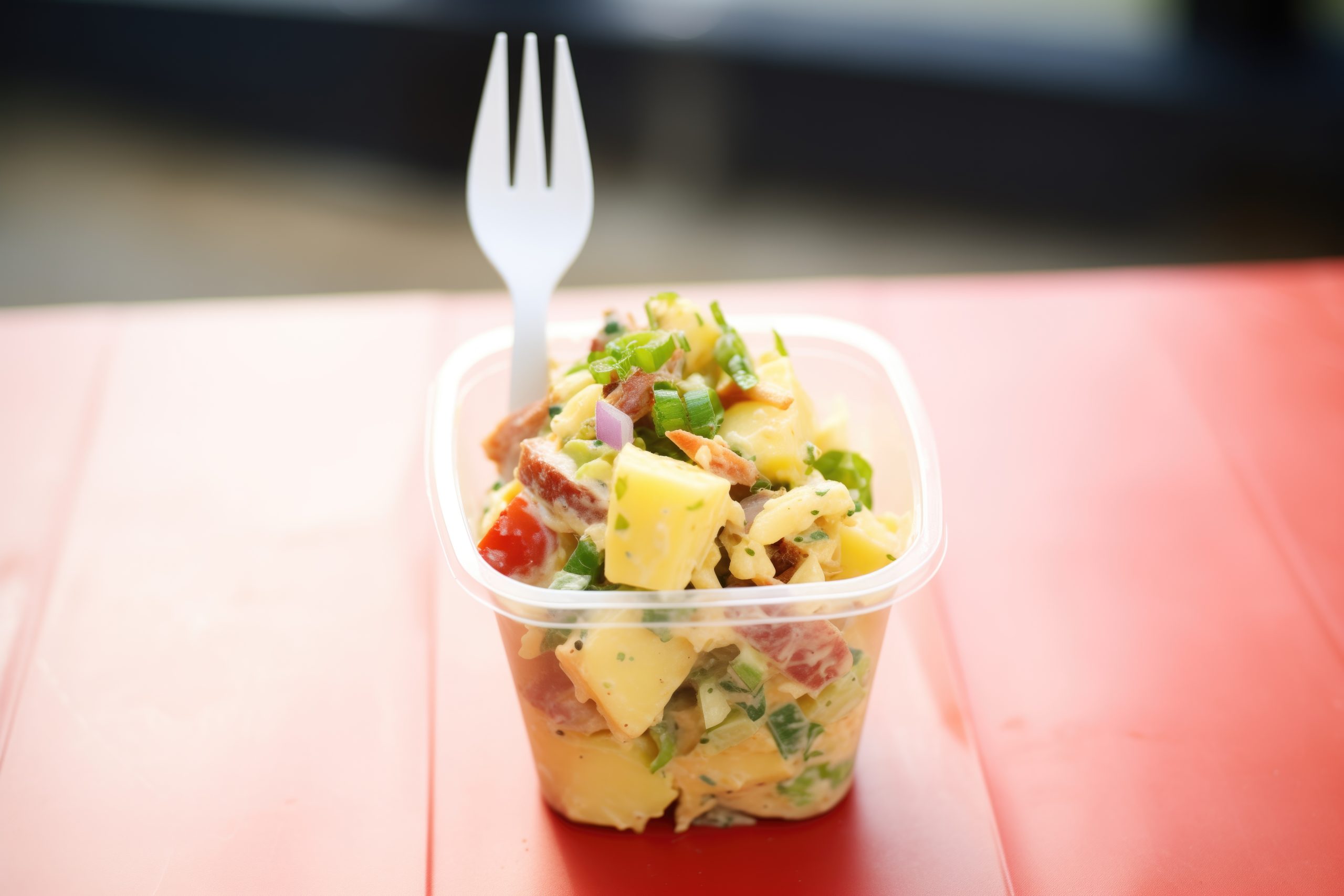You are in the refrigerated “grab-and-go” section of your grocery store. You see a container of “fresh,” “store-made” pasta salad or a delicious-looking sandwich. The label gives you the impression that a chef in the back of the store prepared it that very morning. In most supermarket chains, however, this is a carefully crafted illusion. Many of these “fresh” meals are actually a form of “frozen fakery.” They were mass-produced in a factory months ago, frozen solid, and then simply thawed out for sale.

1. Deli Pasta and Potato Salads
The tubs of macaroni salad, potato salad, and coleslaw in the deli case are rarely made in the store. These items are produced in a large, industrial food processing plant. They are then packaged and often frozen or shipped under refrigeration to a distribution center. The store’s deli employees simply open a large bag of the pre-made salad and put it into the serving containers.
2. Pre-Made Sandwiches and Wraps
The neatly packaged sandwiches and wraps that promise a quick and easy lunch are also often not as fresh as they appear. Many chains use a central kitchen to assemble their sandwiches. They are then flash-frozen or shipped in a modified atmosphere package to the individual stores. The store’s only job is to put a “made on” date on the package and to place it on the shelf.
3. Store-Brand Soups
The “soup of the day” at the hot bar is often made from a pre-made, frozen base. The deli employees will simply thaw a large bag of the concentrated soup and add water or other ingredients. This is a much more efficient and cost-effective system than making a new pot of soup from scratch every single day. The “fresh” soup was likely made in a factory weeks before.
4. Many Varieties of Store-Made Sushi
While some high-end grocery stores have a dedicated sushi chef on-site, many do not. The pre-packaged sushi you see in the refrigerated case is often made in a central, off-site kitchen. It is then delivered to the store each morning. While it may have been made that day, it was not “made in the store” as you might assume.
5. Marinated Meat Kabobs
The colorful, ready-to-grill meat and vegetable kabobs in the butcher case are a major time-saver. However, the meat and vegetables are often not cut and assembled in the store. These items will often arrive at the store pre-assembled and frozen from a central processing facility. The butcher’s only job is to thaw them out and arrange them in the meat case.
6. Many “Freshly Squeezed” Juices
The bottles of “freshly squeezed” orange juice or green juice in the produce section can also be misleading. While the juice may be fresh, it was likely not squeezed in that specific store. Many chains now use a central juicing facility to produce the juice for an entire region. It is then bottled and shipped to the individual stores each day.
7. Some Decorated Cakes

The beautifully decorated cakes in the bakery case are the work of a skilled artist. However, that artist may not work at your local store. Many grocery chains now use a central bakery to bake and decorate their more elaborate cakes. These finished cakes are then frozen and shipped to the individual stores. The in-store bakery staff will just thaw them and add any personalized message.
The Central Kitchen Model
The move to a “central kitchen” model is all about consistency and efficiency. It is much cheaper for a grocery chain to produce its prepared foods in a single, large factory than it is to have a full kitchen staff at every single one of its locations. While this model is a smart business decision, it creates a misleading impression of freshness for the consumer. The “store-made” meal you are eating was likely made in a factory hundreds of miles away.
How important is it to you that a “fresh” meal is actually made from scratch in the store? Does this information change how you feel about buying prepared foods? Let us know!
What to Read Next
- Adults Are Ordering Kids’ Meals in Huge Numbers—The Reasons May Surprise You
- 5 Frozen Meal Brands Accused of Misleading Claims
- 6 Popular Frozen Meals That Nutritionists Say Are Misleading
- What It Means When You Only Shop in Frozen or Canned Sections
- 7 Frozen Meals That Disappear Fast in the South but Rot in the North
The post Frozen Fakery: 7 “Fresh” Meals That Were Made Months Ago appeared first on Grocery Coupon Guide.







